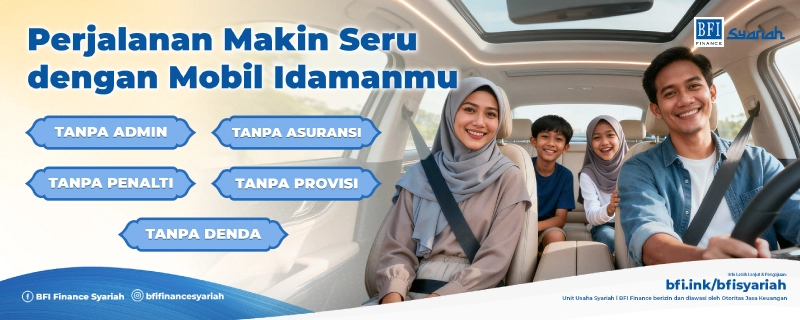In the digital era like now, quite a few people are caught in the consumer debt trap. Because, they can easily get products with credit access via the marketplace. Moreover, the presence of paylater makes it easier for people to buy certain goods.
In fact, not all the items purchased are really needed, right? Some just fulfill temporary desires and Fear of Missing Out (FOMO) because many people buy these items.
Of course, this is very dangerous for your finances. Especially if you buy items that are useless because it will increase the burden of paying debts every month. If the amount of debt does not match your income, before long you will fall into a consumer debt trap which will have a negative impact on your finances.
So, to know more clearly about what consumer debt is and tips for avoiding the consumer debt trap, you can check the complete review below.
1. What is Consumer Debt
Consumer debt is a loan of money that is used only to satisfy consumer desires. This loan will not be turned over to generate profits, so it is quite risky if you get trapped in this debt.
An example of consumer debt that is often encountered in people's lives, namely someone borrowing money just to go on a spree. Apart from that, this debt also often occurs when someone borrows money to fulfill a lifestyle, such as buying a luxury bag, expensive shoes, the latest smartphone or staying at a luxury hotel.
Due to FOMO and prestige, consumer debt arises due to wanting to buy something beyond one's means. So, you should avoid this type of consumer debt because it will only be detrimental and will not provide any benefits.
2. Tips to Avoid the Consumer Debt Trap

So, in order to avoid the consumer debt trap, there are several tips that you can follow and put into practice, namely:
2.1 Create a Clear Financial Plan
The first tip to avoid the consumer debt trap is to make a clear and well-planned financial plan. By making a financial plan, you can monitor your income and expenses well.
When making a monthly financial plan, estimate how much income you will receive in one month. Next, prioritize the expenses you have to make, such as paying electricity bills, internet, food costs, children's education, rent costs and others. Just adjust your financial priorities because everyone has different priorities.
To make a financial plan, you can use the 50-30-20 budgeting method. For example, 50% of salary for needs, 30% for wants and 20% for savings.
However, the budget allocation in a financial plan doesn't have to be like that, you can adjust the numbers yourself according to your individual priorities.
2.2 Prioritize Needs Over Wants
Often many people miss this because they cannot differentiate between needs and wants.
So, when you want to buy something, make sure you ask yourself first whether the product you are going to buy is really needed? You must be able to differentiate between items that are really needed, such as medicine, food or clothing, and items that you want, such as the latest smartphone or branded clothing.
After that, if the previous item is still suitable for use, it means you don't have to buy a replacement item now. For example, when you want to buy new clothes, think about whether you really need them or just want to buy them.
Lastly, ask yourself what impact you will have if you don't buy it. If it doesn't have any impact, then it's certain that the item is just to satisfy your desires, i.e. you don't really need it.
Remember, you can avoid the consumer debt trap by prioritizing needs over desires. Therefore, before buying an item, try to let it sit for at least 7 days. If you still want to buy it, then you really need this item.
2.3 Use Credit Services Wisely
Another tip to avoid the consumer debt trap is to use credit services, such as credit cards and paylaters wisely.
However, you still need to be careful because credit card services and paylater features are like a double-edged sword. Both will make it easier for you when making transactions, especially online. However, it has the potential to lead you into a consumer debt trap.
So, as much as possible, use a credit card or paylater only to buy items that are really needed. Then, make sure to pay all bills on time every month.
Additional tips, try setting your credit card and paylater limits to the limits of your respective abilities for monthly spending. So, you can still pay your bills on time and avoid interest due to late bill payments.
2.4 Don't be Easily Tempted by Promotions and Discounts
The presence of marketplace platforms or online shopping places is increasingly widespread, creating lots of various attractive promos or discounts. This can be a trap for consumers, where they will buy goods that they don't really need. The reason is because the item in question is currently on promotion or has a big discount.
To avoid tempting promotions and discounts, make sure you are not easily tempted by all these things, OK? Always think clearly that the items you will buy are only the products you need.
2.5 Consider Investments
Many people, especially young people, choose to buy something because they are afraid of missing out on trends or FOMO. For example, buying expensive concert tickets or buying the latest version of a smartphone just because you follow the trend, especially showing off on social media.
Usually, they have a reason for doing it, namely for self-reward. Actually, there is nothing wrong with self-reward. Just make sure you do it in moderation, aka don't overdo it to the point of burdening your finances, OK? Moreover, if you decide to choose an online loan with exorbitant interest, it will definitely have fatal consequences if you are unable to pay it off on time.
Instead of spending money on something that is not really needed or just satisfies a desire, it is better to use the money to invest.
Of course, there are many investment options that you can choose from and are currently trending among young people. For example, investment products that have a positive impact on the environment and have good performance in generating returns.
One example is a collection of shares that have been included in the SRI-Kehati Stock Index. The shares included in the SRI-Kehati Stock Index are shares selected and have passed selection using company selection standards that apply SRI (Sustainable Responsible Investment), environmental, social and ESG (Environmental, Social and Good Governance) principles.
This is information regarding tips for avoiding consumer debt traps that you must understand well. From now on, avoid buying things or products just because of FOMO, unless you really need them. Always make a financial plan regularly every month so you know how much you are spending and what income you are receiving. Make sure to evaluate it too so that your financial condition is always good from time to time.
---
BFI Finance, as a trusted financing company in Indonesia, also provides loan services for consumer needs with BPKB motorbike or car collateral. Enjoy various benefits such as disbursement of up to 85% of the vehicle value, competitive interest rates and long tenors. Apply for financing now only at BFI Finance. #SelaluAdaJalan with BFI Finance.






